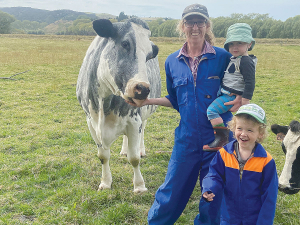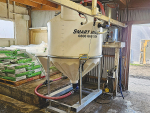The report rightly steers clear of the 'blame game'. Instead, she says the science on fresh water quality is confusing and complex.
While she believes the excuse of asking for more science should not be a means of delaying decision making, her report emphasises building a whole-picture understanding of the issues.
More importantly, she says listening to dairy farmers about fresh water quality science must be a priority.
Too often we see agriculture – in particular dairy farmers – under fire for not doing enough to prevent pollution of rivers and streams. The critics must realise there is plenty of change happening in the dairy industry.
Between council policing and penalties, and best-practice incentives and education provided by the likes of DairyNZ and Fonterra, the industry is rapidly cleaning up its act.
Contrary to what the Greens say, if farmers had their
heads in the sand, we wouldn't have seen the reduction in consent non-compliance observable last year throughout the country.
That is not to say some farmers couldn't do better. There is no room in dairying for farmers who ignore regulations or consent conditions and contribute to water pollution.
All farmers want is a scientific approach to cleaning up our rivers and environment.
We must understand the causes and sources to find effective solutions. All New Zealanders can start with the simple, cost-effective mitigation steps available to put in place expediently.
Federated Farmers is right in saying science holds the key to improving New Zealand's water quality, without placing undue restraints on our agricultural production capacity. The PCE's report supports the stance of farmers – including Federated Farmers – in proactively, and scientifically, cleaning up waterways.
We agree deteriorating water quality needs to be addressed. The cost of doing nothing is too high.
However, as the report says, the responsibility for cleaning up our rivers and lakes rests on all New Zealanders, not just dairy farmers.







